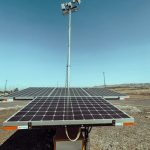Male Vandergrift
The Best RV Furniture for Small Spaces
The Best RV Furniture for Small Spaces: Maximize Comfort and Style 🚐
Living the RV life means embracing a world where every square inch counts. Whether you’re a weekend warrior or a full-time road traveler, finding the right furniture for your RV can make all the difference. Let’s dive into the best RV furniture options that are perfect for small spaces, ensuring you get the most out of your mobile home without sacrificing comfort or style.
Table of Contents
1. Compact Seating Solutions
2. Multifunctional Furniture
3. Smart Storage Solutions
4. Foldable Dining Options
5. Conclusion
6. FAQs
Compact Seating Solutions 🛋️
When it comes to seating, opt for pieces that are both comfortable and space-efficient. Look for compact loveseats or recliners designed specifically for RVs. Brands like RecPro and Thomas Payne offer a range of RV-specific seating that includes features like hidden storage, easy-to-clean fabrics, and even built-in cup holders. Choosing furniture with dual purposes, such as a sofa that converts into a bed, is a great way to maximize space.
Multifunctional Furniture 🛏️➕🪑
In a small space, every piece of furniture should serve more than one purpose. Consider investing in multifunctional furniture like a Murphy bed that folds up to reveal a desk or a dining table that doubles as a workspace. These versatile pieces help you make the most of your limited square footage, allowing your RV to adapt to your changing needs throughout the day.
Smart Storage Solutions 📦
Storage is a premium in any RV. Look for furniture that incorporates storage, such as ottomans with hidden compartments or under-seat storage in your dining area. Wall-mounted shelves and organizers can also help keep your living area tidy without taking up valuable floor space. Remember, vertical space is your best friend in a small RV!
Foldable Dining Options 🍽️
Dining tables can take up a lot of room, but foldable options can offer the perfect balance of functionality and space-saving design. Consider a wall-mounted drop-leaf table that folds away when not in use or a compact bistro set that can be easily stowed. These solutions allow you to enjoy meals comfortably without compromising your living area.
Conclusion
Choosing the right furniture for your RV doesn’t have to be a daunting task. By focusing on compact, multifunctional, and smart storage solutions, you can create a cozy and efficient living space that feels like home, no matter where the road takes you. Remember to prioritize quality and durability to ensure your furniture withstands the rigors of travel.
FAQs
Q: What are the best materials for RV furniture?
A: Look for materials that are lightweight yet durable, such as aluminum frames with upholstery that is easy to clean and resistant to wear and tear.
Q: How can I make my RV feel more spacious?
A: Use light colors, mirrors, and strategic lighting to create the illusion of more space. Additionally, keep clutter to a minimum with effective storage solutions.
Q: Can I use regular furniture in my RV?
A: While you can use regular furniture, RV-specific furniture is designed to be lightweight and space-efficient, making it a better choice for maximizing your space and comfort.
Q: How do I secure furniture in an RV?
A: Use brackets, straps, and non-slip pads to secure furniture and prevent it from shifting during travel.
Embrace the journey with the perfect furniture setup and enjoy the freedom of the open road! 🛣️
How to Save Money While Living in an RV
How to Save Money While Living in an RV: The Ultimate Guide
Living in an RV can be a dream come true for many—traveling the open road, waking up to new sights, and enjoying the freedom of a nomadic lifestyle. But how do you keep costs down while living on four wheels? 🚐 This guide will show you how to make the most of your RV lifestyle without breaking the bank!
Table of Contents
1. Understanding RV Living Expenses
2. Choosing the Right RV
3. Opt for Free or Low-Cost Campsites
4. Minimize Fuel Costs
5. Save on Food and Groceries
6. Maintain Your RV Regularly
7. Embrace DIY Repairs
8. Conclusion
9. FAQs
Understanding RV Living Expenses
Before diving into money-saving tips, it’s essential to understand what your main expenses will be. These typically include the cost of the RV itself, fuel, campsite fees, food, and maintenance. By understanding these costs, you’ll be better prepared to make strategic decisions that save money.
Choosing the Right RV
Your choice of RV can significantly impact your budget. Opt for an RV that suits your needs without unnecessary extras. Consider factors like fuel efficiency, size, and the amenities you genuinely need. A smaller, more fuel-efficient RV will save you money in the long run. 🚐💡
Opt for Free or Low-Cost Campsites
One of the significant expenses in RV living is campsite fees. However, there are plenty of options for free or low-cost camping:
⭐ Boondocking: Also known as dry camping, this refers to camping without hookups. Many public lands offer free boondocking spots.
⭐ Memberships: Consider joining camping memberships like Passport America or Thousand Trails for discounted campgrounds.
Minimize Fuel Costs
Fuel can be a considerable expense, but there are ways to reduce it:
⭐ Drive Smart: Maintain a steady speed and avoid rapid acceleration and braking.
⭐ Plan Routes: Use apps like GasBuddy to find the cheapest fuel prices and plan efficient routes.
Save on Food and Groceries
Cooking your meals can save a significant amount of money compared to dining out:
🍳 Meal Prep: Plan meals ahead and buy groceries in bulk to save money.
🥦 Local Markets: Shop at local farmers’ markets for fresh and often cheaper produce.
Maintain Your RV Regularly
Regular maintenance can prevent costly repairs down the road. Ensure you keep up with the basics like oil changes, tire checks, and regular inspections to keep your RV running smoothly. 🛠️
Embrace DIY Repairs
Learning to perform basic RV repairs yourself can save you a lot of money. There are countless online resources and communities where you can learn to fix common issues. Plus, you’ll gain a sense of accomplishment and new skills in the process! 🎓🔧
Conclusion
Living in an RV doesn’t have to be expensive. With careful planning and a few strategic choices, you can enjoy the freedom and adventure of the RV lifestyle while keeping your budget in check. Happy travels! 🌍✨
FAQs
Q: How much does it cost to live in an RV full-time?
A: Costs vary based on lifestyle, but typically range from $1,500 to $3,000 per month, including all expenses.
Q: Is boondocking legal everywhere?
A: No, boondocking is not legal everywhere. Always check local regulations and public land guidelines before setting up camp.
Q: How can I find free campsites?
A: Websites and apps like FreeCampsites.net and Campendium are excellent resources for finding free or low-cost campsites.
With these tips, you’re well on your way to an affordable and adventurous RV lifestyle. Safe travels! 🚐💨
RV Life: Managing Health and Wellness on the Road
RV Life: Managing Health and Wellness on the Road 🚐💪
Embracing the RV lifestyle offers freedom and adventure, but it also comes with its own set of challenges, especially when it comes to maintaining health and wellness. Whether you’re a full-time RVer or a weekend wanderer, staying healthy on the road is crucial for enjoying your travels to the fullest. In this blog post, we’ll explore practical tips and strategies to help you manage your health and wellness while living the RV life.
Table of Contents
1. Introduction
2. Prioritizing Physical Fitness 🏋️♂️
3. Eating Well on the Road 🍎
4. Mental Wellness and Mindfulness 🧘♀️
5. Access to Healthcare Services 🚑
6. Conclusion
7. FAQs
Prioritizing Physical Fitness 🏋️♂️
Staying active is essential, even when you’re on the move. Here are some tips to keep your fitness routine on track:
1. Portable Exercise Equipment
Investing in portable exercise equipment like resistance bands or a yoga mat can be a game-changer. They’re easy to store and can be used anywhere, from the beach to a parking lot.
2. Explore Outdoor Activities
Take advantage of your changing surroundings by engaging in outdoor activities. Hiking, biking, or even a simple walk around the campground can keep you fit while offering a chance to explore new areas.
3. Online Fitness Classes
Many fitness instructors offer online classes that you can follow from your RV. Whether it’s a quick HIIT session or a calming yoga class, there’s something for everyone.
Eating Well on the Road 🍎
Navigating nutrition while traveling can be tricky, but with a little planning, you can maintain a healthy diet:
1. Plan Your Meals
Before hitting the road, plan your meals and stock up on essentials. Having a meal plan helps avoid the temptation of fast food and ensures you have nutritious options available.
2. Find Local Produce
Visit local farmers’ markets to enjoy fresh and seasonal produce. Not only is this a healthy choice, but it also supports local communities.
3. Smart Snacking
Keep healthy snacks like nuts, fruits, or yogurt easily accessible to curb hunger and avoid unhealthy options.
Mental Wellness and Mindfulness 🧘♀️
The freedom of the open road can be exhilarating, but it’s important to take care of your mental health:
1. Practice Mindfulness
Incorporate mindfulness practices like meditation or journaling into your daily routine. These practices can help reduce stress and enhance your travel experience.
2. Stay Connected
While solitude can be refreshing, staying connected with friends and family is important. Regular check-ins can provide emotional support and combat loneliness.
3. Set a Routine
Establishing a routine, even a flexible one, can provide a sense of normalcy and stability while on the road.
Access to Healthcare Services 🚑
Ensuring access to healthcare is vital for long-term travelers:
1. Know Your Healthcare Options
Research healthcare facilities along your route, including urgent care centers and pharmacies. Knowing where to go in case of an emergency can provide peace of mind.
2. Telehealth Services
Consider using telehealth services for non-emergency medical consultations. These services are convenient and can be accessed from anywhere.
3. Keep a First Aid Kit
Always have a well-stocked first aid kit on hand. Include essentials like band-aids, antiseptics, and any personal medications.
Conclusion
RV life offers an incredible sense of freedom and adventure, but it’s important to prioritize your health and wellness to make the most of it. By incorporating fitness, nutrition, mental wellness, and healthcare planning into your travel routine, you can enjoy a balanced and fulfilling life on the road.
FAQs
1. How do I maintain a workout routine in a small RV space?
Using portable exercise equipment like resistance bands and taking advantage of outdoor activities can help you stay fit without needing much space.
2. What are some easy meals to prepare in an RV?
Consider meals like stir-fries, salads, and one-pot dishes that are quick to prepare and require minimal cleanup.
3. How can I find local healthcare facilities while traveling?
Use apps and online resources to locate healthcare services along your route. It’s also useful to have a list of emergency contacts and facilities.
4. What are some tips for staying mentally healthy on long road trips?
Practice mindfulness, stay connected with loved ones, and establish a flexible routine to maintain mental wellness during your travels.
Embark on your RV journey with confidence, knowing you have the tools to stay healthy and well while exploring the open road! 🌍✨
How to Plan a Family RV Vacation
How to Plan a Family RV Vacation: Your Guide to a Memorable Adventure 🚐
Dreaming of hitting the open road with your family in an RV? There’s nothing quite like the freedom and adventure of a road trip vacation! Whether you’re a seasoned traveler or a first-time RV enthusiast, planning a successful trip requires a bit of know-how. In this guide, we’ll explore everything you need to ensure your family RV vacation is one for the books.
Table of Contents
1. Choose Your Destination
2. Budgeting and Costs
3. Packing Essentials for an RV Trip
4. Meal Prep and Cooking on the Road
5. Safety Tips for RV Travel
6. Fun Activities for the Family
7. Conclusion
8. FAQs
Choose Your Destination 🌍
The first step in planning your RV adventure is deciding where to go. Consider the interests of all family members and search for destinations that offer activities everyone will enjoy. National parks, coastal routes, or theme parks are popular choices. Make sure to check the availability of RV parks and campgrounds in the area before finalizing your plans.
Budgeting and Costs 💰
Understanding the costs involved in an RV vacation can help you avoid surprises. Budget for fuel, campground fees, food, and any attractions you plan to visit. It’s also wise to set aside a contingency fund for unexpected expenses. Remember, planning and booking in advance can often help you snag discounts!
Packing Essentials for an RV Trip 🧳
Packing for an RV trip can feel overwhelming, but it doesn’t have to be. Start with the basics: clothing appropriate for the weather, toiletries, and personal items. Don’t forget camping gear like chairs and a portable grill. Make a checklist to ensure you don’t leave anything important behind.
Meal Prep and Cooking on the Road 🍳
Cooking in an RV can be a fun experience with a little preparation. Plan meals ahead to save time and reduce stress. Stock up on non-perishable items and prepare a few meals in advance if possible. Also, consider the local cuisine at your destination for a fun culinary experience!
Safety Tips for RV Travel 🚦
Safety should be a priority on any family trip. Familiarize yourself with your RV’s controls and perform a safety check before departure. Have a first-aid kit on hand, and map out hospitals along your route. Educate your family on emergency protocols to ensure everyone’s safety.
Fun Activities for the Family 🎲
Keep the family entertained with a mix of activities. Board games, books, and outdoor sports equipment are great for downtime at the campsite. Plan family-friendly activities like hiking, fishing, or sightseeing tours to make the most of your adventure.
Conclusion
Planning a family RV vacation can be an exciting endeavor with the right preparation. By choosing the right destination, budgeting wisely, packing essential items, and ensuring safety, you can create a memorable experience for the entire family. So buckle up, hit the road, and enjoy the journey! 🚐💨
FAQs
Q: What is the best time of year for an RV vacation?
A: The best time depends on your destination. Summer is popular for national parks, while spring or fall offers milder weather and fewer crowds.
Q: How can I save money on an RV trip?
A: Book campgrounds in advance, prepare your own meals, and look for free or discounted attractions. Traveling during the off-season can also reduce costs.
Q: Is it better to rent or buy an RV for a family vacation?
A: Renting is a great option for first-time RVers or those who only plan occasional trips. Buying might be more economical for frequent travelers.
Q: What should I do if my RV breaks down?
A: Always carry a roadside assistance plan and familiarize yourself with basic RV maintenance. Having a repair kit and essential tools can also be beneficial.
Q: How do I find RV-friendly campgrounds?
A: Use apps and websites like Campendium or KOA to search for campgrounds with RV facilities, which include hookups for water, electricity, and sewage.
The Best RV Tires for All Seasons
The Best RV Tires for All Seasons: Your Ultimate Guide
Exploring the open road in an RV is an adventure like no other. But to truly enjoy the journey, having the right tires on your RV is essential. Whether you’re cruising through snowy mountains or sun-drenched deserts, all-season tires can make your travels smoother and safer. In this guide, we’ll dive into the best RV tires for all seasons, helping you make an informed decision. Let’s hit the road! 🚐✨
Table of Contents
1. Introduction
2. Why All-Season Tires Matter
3. Features to Look for in RV Tires
4. Top Picks for All-Season RV Tires
5. Maintenance Tips for Longevity
6. Conclusion
7. FAQs
Why All-Season Tires Matter 🌦️
All-season tires are designed to perform well in a variety of weather conditions. Unlike summer or winter-specific tires, they offer a balanced performance in rain, light snow, and dry conditions. This means you can tackle different terrains without constantly changing your tires. Plus, they come with unique tread patterns and rubber compounds that enhance traction and durability. Who doesn’t want a hassle-free, year-round adventure?
Features to Look for in RV Tires 🔍
When choosing all-season RV tires, consider the following features:
Tread Pattern
Look for a tread pattern that offers excellent grip in wet and dry conditions. A deeper tread depth can help in snowy or muddy terrains.
Load Rating
Ensure the tires can support the weight of your fully-loaded RV. The load rating will indicate the maximum weight a tire can handle.
Durability
Opt for tires that are built to last. Reinforced sidewalls and high-quality rubber compounds increase a tire’s lifespan.
Noise Levels
Some tires can be quite loud on highways. If you prefer a quieter ride, consider tires known for low noise emissions.
Top Picks for All-Season RV Tires 🚚
Here are some of our top recommendations for all-season RV tires:
1. Michelin Agilis CrossClimate
Known for its durability and excellent traction in various conditions, the Michelin Agilis CrossClimate is a favorite among RV enthusiasts. Its robust design offers a quiet and comfortable ride.
2. Goodyear Endurance
The Goodyear Endurance tire is built for heavy loads and long trips. Its innovative tread design and strong sidewalls make it a reliable choice for all seasons.
3. Bridgestone Duravis R500 HD
This tire is perfect for those who travel extensively. It’s engineered for long-lasting performance, offering superior handling and stability, even in light snow.
Maintenance Tips for Longevity 🛠️
To get the most out of your RV tires, regular maintenance is key:
Check Tire Pressure Regularly
Underinflated or overinflated tires can lead to uneven wear and decreased fuel efficiency. Check your tire pressure monthly and before long trips.
Rotate Your Tires
Regularly rotating your tires helps ensure even wear, extending their lifespan. Aim to rotate every 6,000 to 8,000 miles.
Inspect for Damage
Routinely check for any cuts, punctures, or bulges. Addressing these issues early can prevent bigger problems down the road.
Conclusion: Ready to Roll? 🚀
Choosing the right all-season tires for your RV is crucial for a safe and enjoyable journey. With the right tires, you can conquer any weather and road condition, ensuring your adventures are nothing short of amazing. So, gear up and embark on your next road trip with confidence!
FAQs
1. What is the difference between all-season and all-terrain tires?
All-season tires are designed for on-road use in varied weather conditions, while all-terrain tires are built for off-road use, providing better traction on unpaved surfaces.
2. How often should I replace my RV tires?
Typically, RV tires should be replaced every 5 to 7 years, regardless of tread wear, due to rubber aging.
3. Can I use winter tires instead of all-season tires for my RV?
While winter tires offer superior performance in snowy conditions, they may wear faster in warm weather. All-season tires provide a balanced performance throughout the year.
4. Do all-season tires work well in heavy snow?
All-season tires can handle light to moderate snow, but may not perform as well in heavy snow. For extreme winter conditions, consider dedicated winter tires.
How to Make Your RV Feel Like Home
How to Make Your RV Feel Like Home 🏡
Living in an RV can be an exciting adventure, offering freedom and flexibility. However, making it feel like home can sometimes be a challenge. In this blog post, we’ll explore practical and creative ways to bring the cozy comfort of home into your RV. Let’s dive in! 🚐✨
Table of Contents
1. Personalize Your Space
2. Optimize for Comfort
3. Enhance Lighting and Ambiance
4. Incorporate Personal Touches
5. Conclusion
6. FAQs
Personalize Your Space 🎨
Your RV is your personal sanctuary on wheels, and personalizing it can make a world of difference. Start by adding personal photographs, art pieces, or even a small gallery wall. You can use removable hooks or adhesive strips to avoid damaging the walls. Consider adding a pop of color with throw pillows or a cozy blanket that reflects your style.
Optimize for Comfort 🛋️
Comfort should be a top priority in your RV. Invest in a quality mattress topper to ensure a good night’s sleep. Add plush rugs to soften the floors, and consider upgrading seating with comfortable cushions. Remember, comfort doesn’t have to be compromised just because you’re on the road!
Enhance Lighting and Ambiance 💡
Lighting plays a crucial role in setting the mood of your space. Use LED string lights or battery-powered candles to create a warm and inviting atmosphere. You can also install dimmable LED lights to adjust the brightness according to your needs. Natural light is also essential, so keep windows uncovered during the day to let the sunshine in.
Incorporate Personal Touches 🖼️
Little personal touches can make a big difference. Display souvenirs from your travels or add a few indoor plants to bring life to your RV. Plants not only purify the air but also add a splash of greenery that can make the space feel more vibrant and alive. Choose low-maintenance plants like succulents or air plants that are easy to care for while traveling.
Conclusion
Transforming your RV into a homey haven is all about adding elements that reflect your personality and comfort needs. By personalizing your space, optimizing for comfort, enhancing lighting, and incorporating personal touches, you can create a cozy and inviting environment that feels just like home. Safe travels! 🌍
FAQs
Q1: How can I make my RV feel more spacious?
A1: Use multifunctional furniture, keep the space decluttered, and utilize vertical storage solutions to maximize space.
Q2: What are some easy ways to decorate my RV without making permanent changes?
A2: Consider using removable wallpaper, adhesive hooks, and interchangeable décor items like throw pillows and curtains.
Q3: How can I keep my RV organized?
A3: Invest in storage containers, use organizers for cabinets, and regularly declutter to keep everything in its place.
Q4: What plants are best for RVs?
A4: Opt for low-maintenance plants such as succulents, air plants, or small potted herbs that can thrive in a mobile environment.
Q5: How do I maintain the privacy of my RV while keeping it bright?
A5: Use sheer curtains or adjustable blinds that allow light in while maintaining privacy.
RV Life: How to Find Free Camping Spots
RV Life: How to Find Free Camping Spots
Are you ready to hit the open road and embrace the adventurous RV lifestyle? 🚌 One of the biggest perks of RV travel is the ability to find amazing camping spots that don’t cost a dime. Whether you’re a seasoned RVer or just starting out, discovering free camping locations can take your travel experience to the next level. Let’s dive into the world of free camping and uncover some tips and tricks to help you find your next spot!
Table of Contents
1. What is Boondocking?
2. Online Resources for Free Camping
3. Exploring Public Lands
4. Community Tips and Tricks
5. Conclusion
6. FAQs
What is Boondocking? 🤔
Boondocking, also known as dry camping, is camping without any hookups for water, electricity, or sewage. It’s an opportunity to camp away from crowded camping grounds and immerse yourself in nature. Imagine waking up to the sound of birds chirping, with no one else around. Bliss, right?
Online Resources for Free Camping 🌐
Harnessing the power of the internet is one of the best ways to find free camping spots. Here are some trusted resources:
1. Campendium: This website offers user reviews and detailed information on free camping locations across the U.S. It’s user-friendly and a favorite among RV enthusiasts.
2. FreeCampsites.net: As the name suggests, this site is dedicated to helping you find free campsites. It includes maps, GPS coordinates, and user feedback.
3. iOverlander: Perfect for international travelers, iOverlander provides information on free and paid camping spots around the world. It’s a community-driven platform, so the data is constantly being updated by fellow travelers.
Exploring Public Lands 🌲
Public lands are a treasure trove for free camping opportunities. Here’s where you can start your search:
1. Bureau of Land Management (BLM) Lands: These lands are typically found in the western U.S. and offer vast areas for free camping. Just be sure to follow the “leave no trace” principles.
2. National Forests: Many national forests allow dispersed camping, which is free camping outside of designated campgrounds. Check with local ranger stations for specific rules and regulations.
Community Tips and Tricks 💡
Sometimes, the best tips come from fellow RVers. Here are some community-driven suggestions:
1. Social Media Groups: Joining RV-specific groups on Facebook can provide a wealth of information on free camping spots and firsthand experiences.
2. Word of Mouth: When you meet other RVers on the road, don’t hesitate to ask them about their favorite free camping locations. A friendly chat can lead you to hidden gems!
Conclusion
Finding free camping spots enhances the RV lifestyle, offering both freedom and adventure. With a little research and some insider tips, you can discover incredible locations that won’t break the bank. So, pack up your RV, hit the road, and start exploring the endless possibilities that free camping has to offer. Happy travels! 🚐💨
FAQs
1. Can I camp for free in national parks?
Most national parks do not allow free camping except in designated campgrounds, which usually charge a fee. However, nearby national forests often offer free dispersed camping.
2. How do I find out if a public land area allows free camping?
Check the website of the managing agency (e.g., BLM or National Forest Service) or contact a local ranger station for the most accurate information.
3. Is it safe to camp for free on public lands?
Generally, yes. However, always be aware of your surroundings, follow safety precautions, and let someone know your plans and location.
4. What should I bring for boondocking?
Ensure you have enough water, food, and a way to manage waste, as amenities will be limited. A solar panel or generator can also be handy for power needs.
5. Can I stay indefinitely at a free site?
Most free camping locations have a stay limit, typically 14 days. Check for specific rules to avoid fines and ensure these spots remain available for others to enjoy.
How to Install an RV Backup Camera
How to Install an RV Backup Camera: A Step-by-Step Guide
Welcome to the world of RVing! 🚐 Whether you’re a seasoned traveler or a newbie, having a backup camera can make your journeys safer and more enjoyable. In this guide, we’ll walk you through the process of installing an RV backup camera, ensuring that you can park and maneuver your vehicle with ease. Let’s dive in!
Table of Contents
1. Introduction: Why Install a Backup Camera?
2. Tools and Materials Needed
3. Step-by-Step Installation Guide
4. Tips for a Successful Installation
5. Conclusion
6. FAQs
Introduction: Why Install a Backup Camera? 📷
Let’s face it, maneuvering an RV isn’t always a piece of cake. A backup camera provides that extra set of eyes, helping you avoid obstacles and park like a pro. Not only does it enhance safety, but it also boosts your confidence behind the wheel. With a backup camera, you’ll wonder how you ever managed without one!
Tools and Materials Needed 🛠️
Before you start, gather the following tools and materials:
– Backup camera kit (including monitor and cables)
– Drill with drill bits
– Screwdriver set
– Electrical tape
– Wire connectors
– Measuring tape
– Marker
Step-by-Step Installation Guide 🚀
1. Choose the Right Camera Location
Start by selecting an optimal location for your camera. Typically, this is the center of the RV’s rear, just above the license plate. Ensure it’s high enough to provide a good field of view.
2. Mount the Camera
Once you’ve chosen the spot, use the drill to create holes for mounting. Secure the camera with screws and ensure it’s tightly fastened. Use the marker to mark drilling points beforehand for accuracy.
3. Run the Cables
Next, you’ll need to run the cables from the camera to the monitor. Most kits come with detailed instructions. It’s usually best to route cables through the existing pathways in your RV to keep things tidy.
4. Connect the Monitor
Place the monitor on your dashboard. Connect the cables from the camera to the monitor, ensuring all connections are secure. Use wire connectors to make solid connections and wrap them with electrical tape.
5. Test the System
Power up the system to ensure everything works correctly. Test the camera by reversing the RV and checking the monitor for a clear image. Adjust the camera angle if necessary.
Tips for a Successful Installation 💡
– Double-check all connections before drilling or securing any components.
– Be mindful of the cable length; ensure it reaches from the camera to the monitor.
– Read the manual that comes with your camera kit. Each model may have unique features or installation quirks.
Conclusion 🎉
Installing an RV backup camera might seem daunting at first, but with the right tools and guidance, it’s a manageable DIY project. Not only will it make your travels safer, but it will also enhance your overall RVing experience. Happy travels!
FAQs 🤔
1. Do I need professional help to install an RV backup camera?
While professional installation is an option, many RV enthusiasts successfully install backup cameras themselves by following detailed guides like this one.
2. How long does it take to install a backup camera?
Installation time can vary, but most DIY installations take between 2-4 hours, depending on your familiarity with the process and the complexity of your RV’s setup.
3. Can I install a wireless backup camera?
Yes, wireless cameras are available and can simplify the installation process by eliminating the need to run long cables through your RV.
4. What if my camera image is blurry?
If the image is blurry, first check the camera lens for dirt or smudges. If the issue persists, consult the manual for troubleshooting tips, or consider professional assistance.
There you have it! You’re now equipped with everything you need to install your RV backup camera and enjoy safer travels. 🚐💨
The Best RV Solar Generators
The Best RV Solar Generators: Power Your Adventures with Ease ⚡️
As more adventurers hit the road in their RVs, the need for sustainable and reliable power solutions is growing. Enter the RV solar generator—a game-changer for those who love to travel off-grid without losing the comforts of home. In this blog post, we’ll explore the best RV solar generators on the market, helping you make an informed decision for your next trip.
Table of Contents
1. Introduction
2. Why Choose an RV Solar Generator? 🌞
3. Top RV Solar Generators of 2023
4. Key Features to Consider
5. Conclusion
6. FAQs
Why Choose an RV Solar Generator? 🌞
Traveling in an RV offers unparalleled freedom, but it also comes with its own set of challenges—one being power management. Here’s why solar generators are a must-have:
1. Eco-Friendly: Solar generators harness the power of the sun, reducing your carbon footprint and reliance on fossil fuels.
2. Quiet Operation: Unlike traditional generators, solar models operate silently, allowing you to enjoy the sounds of nature.
3. Low Maintenance: With fewer moving parts, solar generators require minimal upkeep, saving you time and money.
Top RV Solar Generators of 2023
After extensive research and user reviews, we’ve narrowed down the top contenders:
1. Jackery Explorer 1000 ⚡️
The Jackery Explorer 1000 is a favorite among RV enthusiasts for its robust power output and portability. With a 1002Wh capacity and multiple charging ports, it’s a versatile choice for most power needs.
2. Goal Zero Yeti 1500X 🌟
Known for its durability and advanced features, the Goal Zero Yeti 1500X offers a 1516Wh capacity. It’s perfect for extended trips, providing reliable power for larger appliances.
3. EcoFlow Delta 1300 🚀
With rapid charging capabilities and a powerful 1260Wh capacity, the EcoFlow Delta 1300 is ideal for those who need quick, efficient power on the go.
Key Features to Consider
When choosing an RV solar generator, keep these features in mind:
1. Capacity: Determine your power needs to select a generator with sufficient watt-hours (Wh).
2. Portability: Consider the generator’s weight and size, especially if you’ll be moving it frequently.
3. Charging Time: Look for models with fast solar or AC charging capabilities to ensure you’re always ready for the road.
Conclusion
Choosing the right RV solar generator can transform your traveling experience, offering independence and peace of mind. Whether you’re a weekend warrior or a full-time traveler, there’s a solar generator out there that fits your needs. So, pack your bags, power up, and enjoy the open road! 🚐✨
FAQs
1. How long does it take to charge an RV solar generator?
Charging times vary based on the solar panel output and generator capacity. On average, it can take 6-12 hours with optimal sunlight conditions.
2. Can I use an RV solar generator to power my air conditioner?
Yes, but you’ll need a generator with a high watt-hour capacity and sufficient inverter power to handle the AC’s startup surge.
3. Are RV solar generators weatherproof?
While solar panels are usually weather-resistant, it’s important to keep the generator itself protected from the elements to ensure longevity.
4. Is it worth investing in a solar generator for my RV?
Absolutely! A solar generator offers a sustainable, quiet, and low-maintenance power solution, enhancing your off-grid travel experience.
How to Winterize Your RV Plumbing
How to Winterize Your RV Plumbing: A Step-by-Step Guide 🛠️
As the chilly winds of winter approach, it’s crucial to prepare your RV for the cold months ahead. Winterizing your RV plumbing is a key step to ensure that your beloved home-on-wheels remains safe from the harsh elements. In this guide, we’ll walk you through the essential steps to protect your RV plumbing system, so you can enjoy peace of mind all winter long. Let’s dive in! 🏕️
Table of Contents
1. Why Winterizing is Important
2. Gathering Your Tools and Supplies
3. Draining the Water System
4. Adding RV Anti-freeze
5. Finishing Touches and Final Checks
6. Conclusion
7. FAQs
Why Winterizing is Important ❄️
Winterizing your RV plumbing system is not just a recommendation—it’s a necessity! Failing to do so can result in frozen pipes, which may lead to costly repairs. When water freezes, it expands, potentially cracking pipes and causing leaks. By taking the time to winterize, you’re ensuring that your RV remains in top shape, ready for adventure come springtime.
Gathering Your Tools and Supplies 🧰
Before getting started, make sure you have all the necessary tools and supplies on hand:
🔧 Basic toolkit (wrenches, screwdrivers)
🧪 RV-specific antifreeze (non-toxic)
🗜️ Water pump converter kit or a hand pump
🚿 Water heater bypass kit
🧼 Cleaning supplies
Draining the Water System 💧
The first step in winterizing your RV plumbing is to drain all the water from the system:
Step 1: Turn off the water heater and allow it to cool. Relieve any pressure by opening a hot water faucet.
Step 2: Open all faucets, including the shower, to drain water from the lines.
Step 3: Open the water heater drain plug and allow it to empty completely.
Step 4: Locate and open the low point drain plugs for the hot and cold water lines, letting all the water flow out.
Adding RV Anti-freeze 🚐
Once the system is drained, it’s time to add RV antifreeze:
Step 1: Use the water heater bypass kit to prevent antifreeze from entering the heater.
Step 2: Attach the water pump converter kit to the water pump inlet.
Step 3: Submerge the kit’s hose into the RV antifreeze container and turn on the pump.
Step 4: Open each faucet and shower one at a time, allowing the antifreeze to flow through until you see it coming out. Don’t forget to flush the toilet until antifreeze is visible.
Finishing Touches and Final Checks ✔️
After the antifreeze is in place, perform these final steps:
Step 1: Pour a small amount of antifreeze down each drain to protect the traps.
Step 2: Double-check all faucets and fixtures to ensure antifreeze is present.
Step 3: Securely close all drains and faucets.
Conclusion
With your RV plumbing system winterized, you can rest easy knowing your vehicle is prepared for the cold months ahead. By taking these precautionary steps, you’ll save time and money, ensuring your RV is ready for your next adventure. Happy travels and stay warm! 🌟
FAQs 🤔
Q1: Can I use regular antifreeze for my RV?
A: No, always use RV-specific antifreeze as it is non-toxic and safe for your plumbing system.
Q2: How often should I winterize my RV?
A: It’s recommended to winterize your RV before temperatures drop below freezing, typically once a year before winter sets in.
Q3: What if my RV is in a warmer climate?
A: Even if you’re in a warmer climate, unexpected cold snaps can occur. It’s best to be prepared and winterize your RV if temperatures may drop below freezing.
Q4: Can I winterize my RV myself, or should I hire a professional?
A: While many RV owners choose to winterize themselves, you can always hire a professional if you’re unsure or prefer expert assistance.









